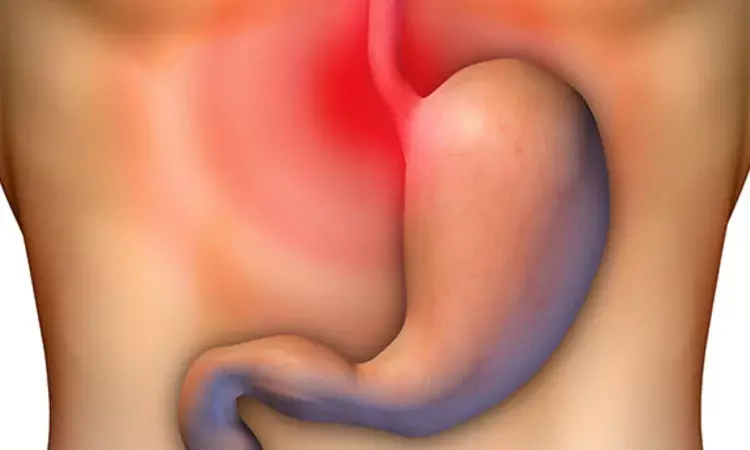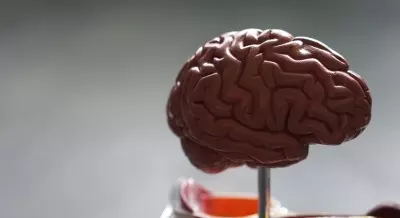- Home
- Medical news & Guidelines
- Anesthesiology
- Cardiology and CTVS
- Critical Care
- Dentistry
- Dermatology
- Diabetes and Endocrinology
- ENT
- Gastroenterology
- Medicine
- Nephrology
- Neurology
- Obstretics-Gynaecology
- Oncology
- Ophthalmology
- Orthopaedics
- Pediatrics-Neonatology
- Psychiatry
- Pulmonology
- Radiology
- Surgery
- Urology
- Laboratory Medicine
- Diet
- Nursing
- Paramedical
- Physiotherapy
- Health news
- Fact Check
- Bone Health Fact Check
- Brain Health Fact Check
- Cancer Related Fact Check
- Child Care Fact Check
- Dental and oral health fact check
- Diabetes and metabolic health fact check
- Diet and Nutrition Fact Check
- Eye and ENT Care Fact Check
- Fitness fact check
- Gut health fact check
- Heart health fact check
- Kidney health fact check
- Medical education fact check
- Men's health fact check
- Respiratory fact check
- Skin and hair care fact check
- Vaccine and Immunization fact check
- Women's health fact check
- AYUSH
- State News
- Andaman and Nicobar Islands
- Andhra Pradesh
- Arunachal Pradesh
- Assam
- Bihar
- Chandigarh
- Chattisgarh
- Dadra and Nagar Haveli
- Daman and Diu
- Delhi
- Goa
- Gujarat
- Haryana
- Himachal Pradesh
- Jammu & Kashmir
- Jharkhand
- Karnataka
- Kerala
- Ladakh
- Lakshadweep
- Madhya Pradesh
- Maharashtra
- Manipur
- Meghalaya
- Mizoram
- Nagaland
- Odisha
- Puducherry
- Punjab
- Rajasthan
- Sikkim
- Tamil Nadu
- Telangana
- Tripura
- Uttar Pradesh
- Uttrakhand
- West Bengal
- Medical Education
- Industry
New Study Links Chronic Proton Pump Inhibitor Use and Bone Health in Men

New research found that chronic use of proton pump inhibitors (PPIs), commonly prescribed for acid-related gastrointestinal conditions, has been linked to increased bone fragility in men. They are not observed in women but only men despite adjustment of bone mineral density and little data exist regarding the impact on bone microarchitecture. The study results were published in The Journal of Clinical Endocrinology & Metabolism.
Research in the past has linked PPIs to increased bone fragility. However, there is uncertainty in the data regarding the bone density and the long-term use of PPIs and also on the microarchitectural quality of the bone. Hence researchers conducted a study to assess whether trabecular bone microarchitecture, as measured by the trabecular bone score (TBS), is negatively impacted by chronic PPI use. Additionally, the study aimed to explore the association between PPI use and bone mineral density (BMD) as a secondary endpoint.
The study utilized data from the 2005-2008 cycles of the National Health and Nutrition Examination Survey (NHANES) which is a large population-based survey. A total of 7,478 participants (3,961 men and 3,517 women) were included, with each subject undergoing lumbar spine dual-energy X-ray absorptiometry (DXA) scans. These scans were used to calculate TBS, a measure of trabecular bone microarchitecture, via specialized software. Multivariable linear regression analyses were performed, stratified by sex, to assess the relationship between chronic PPI use and both TBS and BMD. The analyses were adjusted for relevant confounding factors, including age, body mass index (BMI), and lifestyle variables.
Results:
- The study found that in men, chronic PPI use was associated with a significant decline in bone health.
- Specifically, men using PPIs had lower TBS values (-0.039, 95% CI: [-0.058, -0.020], p<0.001), indicating a deterioration in bone microarchitecture.
- They also had lower T-scores, which reflect BMD, at the lumbar spine (-0.27, 95% CI: [-0.49, -0.05], p=0.018), total hip (-0.20, 95% CI: [-0.39, -0.01], p=0.038), and femoral neck (-0.21, 95% CI: [-0.42, -0.01], p=0.045).
- Importantly, the association between chronic PPI use and poorer TBS remained statistically significant even after adjusting for BMD at both the lumbar spine and femoral neck (-0.026, 95% CI: [-0.039, -0.012], p=0.001).
- Conversely, no significant associations were found between chronic PPI use and TBS or BMD in women suggesting men may be more susceptible to the bone-degrading effects of long-term PPI use than women.
Thus, the findings indicate that chronic PPI use is linked to poorer trabecular bone quality in men, even when BMD is taken into account. No similar association was observed in women, raising questions about sex differences in how chronic PPI use impacts bone health. The study underscores the need for clinicians to carefully monitor bone health in male patients on long-term PPI therapy, particularly those at risk for osteoporosis or other bone-related conditions.
Findings:
Fabio Bioletto, Alessia Pusterla,et al, Sex-specific association of chronic proton pump inhibitor use with reduced bone density and quality, The Journal of Clinical Endocrinology & Metabolism, 2024;, dgae598, https://doi.org/10.1210/clinem/dgae598
BDS, MDS
Dr.Niharika Harsha B (BDS,MDS) completed her BDS from Govt Dental College, Hyderabad and MDS from Dr.NTR University of health sciences(Now Kaloji Rao University). She has 4 years of private dental practice and worked for 2 years as Consultant Oral Radiologist at a Dental Imaging Centre in Hyderabad. She worked as Research Assistant and scientific writer in the development of Oral Anti cancer screening device with her seniors. She has a deep intriguing wish in writing highly engaging, captivating and informative medical content for a wider audience. She can be contacted at editorial@medicaldialogues.in.
Dr Kamal Kant Kohli-MBBS, DTCD- a chest specialist with more than 30 years of practice and a flair for writing clinical articles, Dr Kamal Kant Kohli joined Medical Dialogues as a Chief Editor of Medical News. Besides writing articles, as an editor, he proofreads and verifies all the medical content published on Medical Dialogues including those coming from journals, studies,medical conferences,guidelines etc. Email: drkohli@medicaldialogues.in. Contact no. 011-43720751




